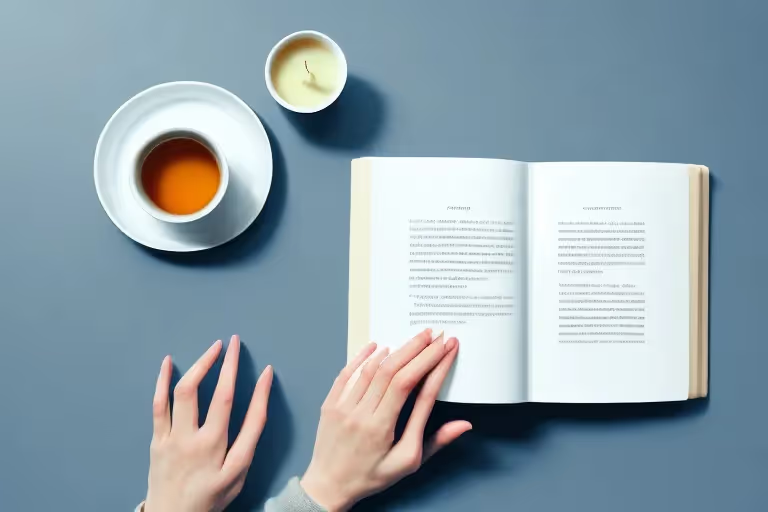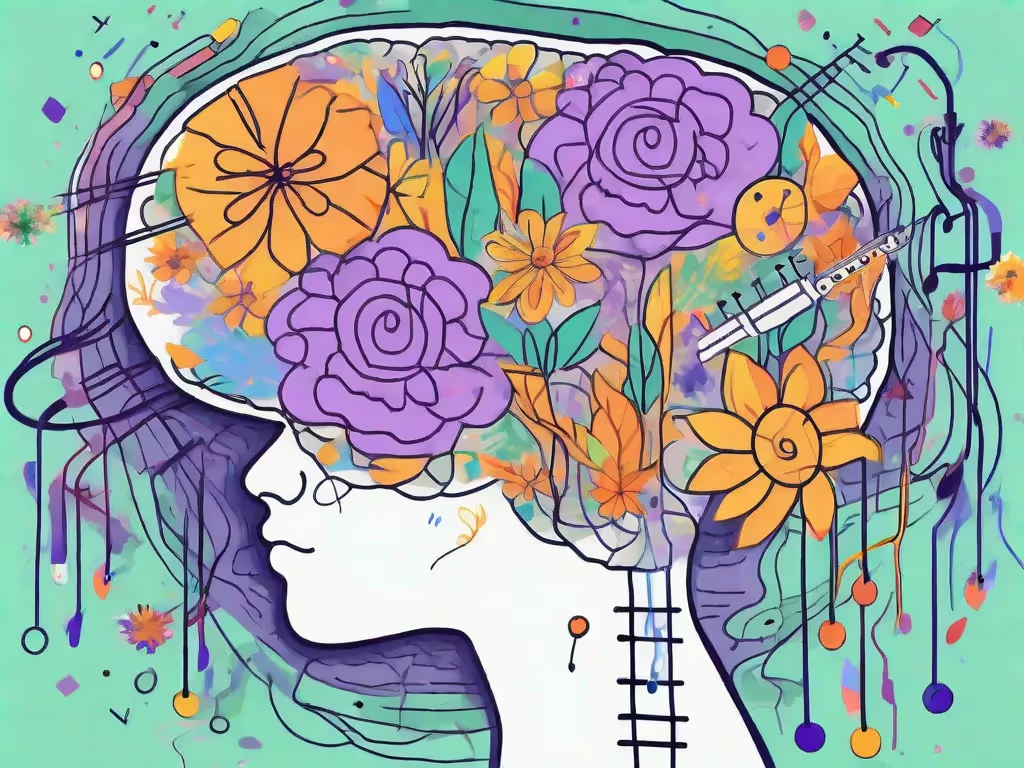Welcome to our guide on how to wind down after a busy day! We all know that feeling - you finally finished a long day of work or running around, but your brain just won't turn off. You're still buzzing with excitement or stress, and you can't seem to relax. If you find yourself in this predicament, fear not! In this article, we'll show you some fantastic tips and tricks for winding down and getting a well-deserved rest.
The Importance of Relaxation
Firstly, it's essential to acknowledge the significance of relaxation in our lives. Relaxation allows our bodies and minds to rest, recharge, and repair from daily stressors. It's like hitting the reset button on your brain and body, which promotes better sleep quality, improved mood and productivity, and overall better health.
Did you know that relaxation can also improve your immune system? When you're stressed, your body produces cortisol, a hormone that can suppress your immune system. By taking the time to relax, you're reducing your cortisol levels and giving your immune system a chance to function at its best.
The Effects of Stress on Your Body
Chronic stress can have damaging effects on your body. It can lead to headaches, fatigue, muscle tension, and even more severe health concerns in the long run, like high blood pressure and heart problems. That's why finding ways to relax and unwind is crucial for your well-being.
One way to combat stress is through exercise. Exercise releases endorphins, which are natural stress-fighters that can improve your mood and reduce tension in your body. Yoga, in particular, has been shown to have significant stress-reducing benefits. It combines physical movement with deep breathing and meditation, which can help calm your mind and reduce stress levels.
Benefits of Regular Downtime
If you're continually working or running errands, it's vital to schedule time for yourself to rest and relax. Regular downtime helps to reduce stress and anxiety, which in turn improves mental clarity, alertness, and overall performance. Giving yourself permission to take a break is not a waste of time. Instead, it's a necessary investment into your mental and physical health.
Did you know that relaxation can also improve your relationships? When you're stressed, you're more likely to be irritable and short-tempered with the people around you. By taking the time to relax, you're improving your mood and reducing the likelihood of conflict with your loved ones.
In conclusion, relaxation is not just a luxury, but a necessity for our well-being. By taking the time to rest and recharge, we're investing in our mental and physical health, improving our immune system, reducing stress and anxiety, and improving our relationships. So, make sure to schedule some downtime for yourself today!
Creating a Calming Evening Routine
Now that we have covered the importance of relaxation, let's dive into some tips for creating a calming evening routine.
Setting Boundaries Between Work and Home
A common cause of stress is the inability to switch off. If you're working from home, it's essential to create boundaries between work and personal life. Set a specific time when you stop working and focus on your home life. It could be as simple as turning off your work phone or computer at a specific time. This way, you're sending a message to your brain that it's okay to relax and focus on non-work-related activities.
It's also important to create a physical boundary between your work and personal space. If you have a dedicated workspace, make sure to leave it at the end of the workday. This could mean closing the door to your office or putting away your work materials. By physically separating your work and personal space, you can create a mental separation as well.
Preparing Your Environment for Relaxation
Another helpful tip is to create a relaxing environment in your home. This could include dimming the lights, lighting some scented candles, or playing calming music. It's all about creating a space that promotes relaxation and calmness.
You could also consider adding some plants to your home. Plants have been shown to have a calming effect on the mind and body. They can help purify the air and create a more peaceful atmosphere in your home.
Incorporating Relaxing Activities into Your Routine
Perhaps the most critical aspect of winding down is incorporating relaxing activities into your routine. This could be anything from taking a warm bath, reading a book, doing some gentle yoga, or watching your favorite TV show. Whatever activity you choose, ensure that it's something you enjoy and that promotes relaxation.
Another activity to consider is journaling. Writing down your thoughts and feelings can help you process your emotions and clear your mind before bed. You could also try meditation or deep breathing exercises to help calm your mind and body.
Finally, make sure to prioritize getting enough sleep. Aim for 7-8 hours of sleep each night and create a bedtime routine that works for you. This could include turning off electronics an hour before bed, taking a warm bath, or reading a book. By prioritizing sleep and creating a relaxing bedtime routine, you'll set yourself up for a more peaceful and productive day ahead.
Mindfulness Techniques for Stress Relief
Mindfulness is a fantastic technique for reducing stress and anxiety. It involves being present in the moment, without judgment or self-criticism. Practicing mindfulness can have significant benefits for your mental and physical health, including reducing stress, anxiety, and depression, improving sleep quality, and increasing overall well-being. Here are some mindfulness techniques that you could incorporate into your evening routine:
Deep Breathing Exercises
Deep breathing is a straightforward yet effective way to calm your mind and body. When you're feeling stressed or anxious, your breathing tends to become shallow and rapid. Deep breathing exercises help to slow down your breathing, which signals to your body that it's time to relax. To practice deep breathing, find a comfortable seated position and close your eyes. Take deep breaths in through your nose for four seconds, hold your breath for a second, and then slowly release your breath through your mouth for six seconds. Repeat this exercise for 5-10 minutes, and you'll notice an instant feeling of relaxation.
Progressive Muscle Relaxation
Another mindfulness technique that you could try is progressive muscle relaxation. This involves tensing each muscle group in your body for a few seconds before releasing the tension. Start by tensing your toes and then your feet, working your way up to your head. This technique helps to release any physical tension in the body. Progressive muscle relaxation is a great way to unwind before bed, as it helps to prepare your body for sleep.
Guided Imagery and Visualization
Guided imagery and visualization involve imagining yourself in a peaceful environment, like a serene beach or a tranquil forest. Allowing your mind to focus on something calming helps to reduce stress and promote relaxation. Visualization can be especially helpful if you're feeling anxious or overwhelmed, as it gives your mind something positive to focus on. There are many guided imagery and visualization exercises available online, or you can create your own by imagining a place that makes you feel calm and peaceful.
Incorporating mindfulness techniques into your daily routine can have a significant impact on your overall well-being. By taking a few minutes each day to practice deep breathing, progressive muscle relaxation, or guided imagery, you can reduce stress and anxiety and improve your mental and physical health.
Nourishing Your Body for Better Sleep
Your diet and hydration levels also play a significant role in the quality of your sleep. Here are some tips for nourishing your body for better sleep:
The Connection Between Diet and Sleep Quality
Studies have shown that certain foods can promote better sleep quality. For example, foods that contain tryptophan, like turkey, milk, and bananas, can help promote sleepiness. On the other hand, meals high in sugar and saturated fat can disrupt sleep patterns.
Foods to Help You Relax and Sleep Better
Some foods that can help you relax and sleep better include chamomile tea, warm milk, and tart cherry juice. Chamomile tea is known to promote relaxation, while tart cherry juice contains melatonin, a hormone that helps regulate sleep-wake cycles.
The Importance of Staying Hydrated
Finally, staying hydrated is crucial for better overall health, including improved sleep quality. Dehydration can cause fatigue and make it challenging to fall asleep. Ensure that you're drinking enough water throughout the day and before bed to promote better sleep.
Conclusion
In conclusion, winding down after a busy day is crucial for your physical and mental health. By incorporating relaxation techniques, mindfulness exercises, and nourishing your body with the right foods, you'll promote better sleep quality and a more relaxed mind and body. So go ahead, give yourself permission to relax, and enjoy a restful night's sleep!
Aura is Your All In One App for Meditation, Mindfulness Wellbeing
Find peace every day with one app for your whole well-being. There is no one-size-fits-all solution to mental well-being. Aura is the first all-in-one wellness app that learns how to best help you. Discover an endless library of expert-created tracks for your well-being, all taught by the world’s best coaches, therapists, and storytellers. With Aura's personalized recommendations, you can find peace every morning, day and night.



.webp)






.avif)

%20(1).avif)


.avif)
.avif)
.webp)


.avif)


















































































































.avif)

















.svg)



.avif)





